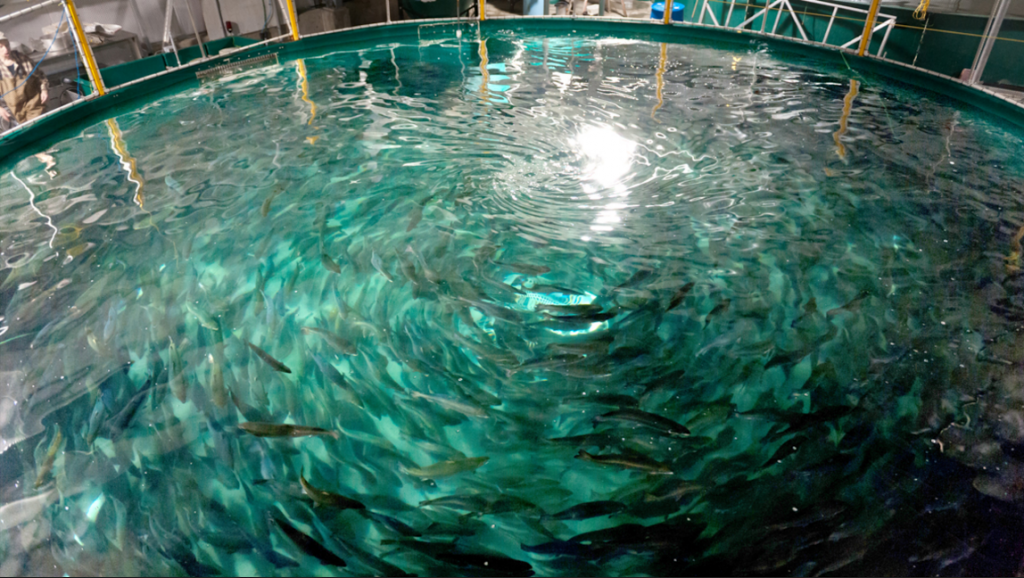An Alternative – Closed Containment Fish Farming
It is widely agreed that wild fish alone cannot satisfy the global demand for seafood. Done the right way, aquaculture has the potential to support global food security.
Net-pen salmon farming in the ocean is wasteful, polluting and consumes more food than it produces. Its impacts on wild salmon and the environment are unacceptable and a net loss to humanity.
Yet there is an alternative.
Canadians are making progress on raising salmon in large tanks on land. In British Columbia and elsewhere, some Atlantic salmon is already grown in closed-containment systems. This can significantly minimize impacts on the marine environment, offering:
- Better bio-security to protect farm salmon.
- Better bio-security to protect wild salmon.
- Greater control over the optimal conditions for growing fish.
- Collection of farm fish waste as a rich fertilizer to grow plant crops.
- Increased social license while meeting a growing consumer demand for sustainable seafood.
- Opportunity to create a Canadian industry and pioneer new methods of aquaculture.
Sustainable aquaculture will require leadership from the Canadian government and a forward-thinking fisheries policy that:
- Recognizes the ecological, economic and social value of wild salmon.
- Gives the aquaculture industry the guidance, support and structure required to mature into a sustainable industry.

